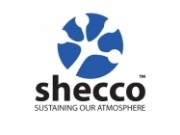We're happy to announce the second round of case studies selected to be presented at ATMO Australia from AJ Baker Refrigeration, ARNEG Oceania, CAREL, CRS, Heatcraft and KAV Consulting.
The ATMOsphere Review Panel is pleased to announce the second round of case study selections for ATMOsphere Australia 2018 taking place on 7 May in Sydney.
AJ Baker, ARNEG Oceania, CAREL, CRS, Heatcraft and KAV Consulting will discuss their innovative natural refrigerant-based technologies at the conference.
The presentations are:
AJ Baker Refrigeration | Transcritical CO2 & Australian supermarkets - continued success by Mike Baker
This case study will highlight the continuing works on transcritical CO2 projects in Australian supermarkets. New projects have been completed since the previous conference, and these will be highlighted, with comparisons made between stores with cascade & transcritical CO2. This will show the energy performance gains achieved, as well as the showing the ability to have the technology successfully installed in high ambient environments.
ARNEG Oceania | R290 and R744 in "built in" commercial refrigerated display cabinets by Andrew Reid
This presentation will look at the recent market trends using natural refrigerants such as R290 or R744 in commercial refrigerated display cabinets thanks to their negligible GWP value. ARNEG has carried out testing activities on some different type of refrigerating solutions for better understanding the possible or potential advantages coming out in terms of environmental impact and energy saving. In all cases the refrigerating systems are integrated with the cabinet. Test results and data comparison will be presented, as well as evaluations on safety standards and risk assessments.
CAREL | Natural refrigerant DC inverter waterloop systems by Tommaso Ferrarese
Following a strong demand from the market, waterloop systems are now available with natural refrigerants, combining efficiency advantages of inverter driven DC compressors with the environmental properties of CO2 and Propane. This case study will feature propane and CO2 waterloop solutions, highlighting the individual characteristics of each, in order to provide a clear picture of the possibilities, boosted both by the use of DC inverter driven compressors and Carel’s technology and know-how.
CRS | Increasing adoption of CO2-basedt technologiesby the private sector by Wynand Groenewald
With the ever increasing interest in CO2, the private sector is slowly moving towards the use of naturals. This prsentation will share the end users reasons, thoughts and experience in making the decision to going natural. CRS showcases their first CO2 rack supply to Australia and share their efforts and collaboration with Australian based consultants and contractors and what the future will look like for them.
Heatcraft | Lessons learned from upgrading to CO2 and ammonia/CO2 cascade systems by Augusto Zimmermann
Heatcraft WWR will share their experience in designing, installing and providing support for CO2 and NH3 equipment to ensure the long-term success of retailers using these systems. It will walk through their experience in developing training programs and engaging customers and other key players in the installation and commissioning lifecycle as well as the promotion of its results. Two case studies will be presented based on CO2 Transcritical technology as well as ultra-low charge Ammonia/CO2 cascade system. The examples will show lessons learned, how structured training programs can a critical component to successful roll-out of new technologies while overcoming concerns associated with their broad adoption. The company will also provide some comparison and contrast regarding the system type advantages and disadvantages and future technology trends in the market
KAV Consulting | The performance of the world's first CO2 evaporative gas cooler/condenser by Klaas Visser
This presentation will cover the application of an hybrid evaporative condenser/gas cooler (HEC/GS), which is the first such application in the world in a mediterranean climate about 60 kms NW of Sydney. Energy savings are due to a sharply reduced electrical energy consumption at an average ambient temperature of 17 deg. C and because heat is recovered by operating the parallel compressors in transcritical mode on demand for six heating functions normally supplied by steam heating. The system will normally operate in subcritical mode at this site where the ambient wet bulb design temperature is 24 deg C. The system will be commissioned next month which will give us enough time to performance test the unit and prepare a presentation. An hybrid design was chosen here to reduce water consumption up to 70% of the heat in the CO2 entering the HEC/GC is sensible heat readily removed by air cooling.
